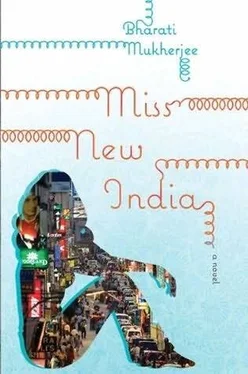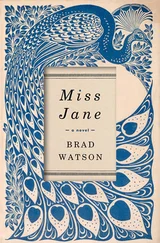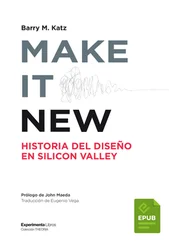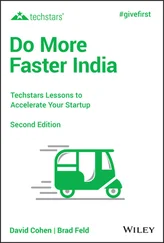Girish disagreed with Peter. "If you dismiss it as outsourcing, then you're simplifying a complicated reality. Vistronics is a kind of outsourcing-we've drawn on a variety of resources-but no one else in the world is doing what we do. We might have started as an appendage technology, but we've evolved. Now we're outsourcing to Kenya and Bangladesh. And do you know what? I see us, in maybe three years, outsourcing our technology to the United States."
Right then and there Anjali fell in love with Mr. GG. He was so right. And so handsome and rich. Not that Peter was wrong, at least not entirely. But Mr. GG cut through Minnie's veils of nonsensical nostalgia and poor Mr. Champion's middle-aged missionary zeal, and he presented a future she longed to live in.
The discussion became more acrimonious through the meat courses. Husseina hustled Asoke and his helpers through the serving of roast duck, chicken fricassee, and mutton stew because she and Tookie soon had to catch their company vans for the all-night shift at the call centers. But Anjali didn't want the meal to end; she didn't want Mr. GG to leave.
Peter's friend Mizz Desai, Anjali noted, seemed to be on Mr. GG's side. She was saying, "When Parvati and I started CCI, our American corporate clients were adamant that our graduates sound American, think American, and fool American callers into believing their customer-service complaints and queries were being resolved by American workers in American cities. That was just four years ago. Our training program had students studying DVDs of American sitcoms, sporting events-"
"And U.S. politics." Parvati broke in. "State capitals, interstate highway numbers, pop stars, rock stars. We had the students study Star magazine. Pathetic, except that it's pretty funny."
"India was déclassé, and Indian-accented English laughed at," Usha continued. "So what does that do to a well-prepared, intelligent, motivated young agent who's mocked as soon as she opens her mouth? That's what we told our corporate clients. Do you want a human answering tape, or do you want a proactive, efficient employee?"
"Some of them came around," Parvati said. "They said just make sure our customers can understand the English that the agents speak." Her own accent was eerily perfect American. She spoke of having trained young women from mofussil towns and villages to handle complicated questions on insurance claims. Women who might have remained illiterate and dependent were now earning decent paychecks. "The point Usha and I have made is that the Indian accent is a sign of competence."
They were the experts, with their professional degrees and their years of experience with comparative business models and communications systems, but they just didn't get it: to a Gauripur runaway like her, Bangalore wasn't about global economics. It was an emotional and moral tsunami; it washed away old beliefs and traditions, the comforting ones together with the crippling, and if you survived, you knew you had the spunk and the grit to rebuild. "Excuse me, madam," Anjali interjected, and she suddenly found herself standing, the focus of everyone's attention. "It's more."
If Usha Desai was irritated at being interrupted, she didn't show it. "Please, Miss Bose, continue," she said, smiling; then she sat down.
Anjali had meant just to listen, just to absorb ideas, but now she was on her feet. And there was Mr. GG, also on his feet, raising his goblet of water in a toast.
Everyone at the table turned to Mr. GG, though none of them lifted their glasses. "Let's hear from the young women themselves," he urged, but his eyes were fastened on unemployed Anjali.
"Go on," Tookie urged Anjali. "You start."
The debaters stared at Anjali. She had their full attention. There was no backing away now.
"Hear, hear!" Mr. GG beamed at her. "Speech, please. We're all ears.
Let words tumble off my tongue, she prayed. "I have been in Bangalore only three weeks. I have no job, no paycheck, and no family here. But I have seen more and learned more in Bangalore than I have from twenty years in Gauripur. Here I feel I can do anything. I feel I can change my life if that's what I want!"
"Brava!" Tookie applauded.
Even shy Sunita dared to speak. "And I do change lives. It's not glamorous work, my life hasn't changed, but every day I save lives of people I'll never see. I work for a company that reports break-ins and medical emergencies of older people living alone, people who can't get up when they fall down. If I wasn't in my cubicle answering calls, American houses would be vandalized and senior citizens would starve to death on the bedroom floor."
Peter looked amused, and Minnie pained. But Anjali was inspired. "The word is… revolution, " Anjali said. "That's it. We're soldiers in a social revolution."
"A bloodless revolution, we hope," Usha said.
Mr. GG chortled. "Oh, there will be blood." No one laughed. "That's the title of an American movie," he explained.
Husseina ignored Girish Gujral's attempt to lighten the conversation. "My friend, my sister Anjali is quite correct. You don't have to be a villager to recognize there's a revolution going on."
Minnie rang her bell to disrupt the talk of revolution. But Husseina was not to be stopped. "History tells us you cannot have a revolution without winners and victims. Most of you here are winners."
Most of you? Not most of us? To Anjali, Husseina sounded as removed from the Bangalore scene as Mad Minnie was. What had she unearthed, with her intuitive correction of the intelligent, worldly CCI women? There was a long, awkward silence.
Finally Peter responded to Husseina. "This same conversation is being repeated millions of times tonight, all over India. We know we are in the middle of a revolution, but is that a good thing? Where will it end? Are we riding a tiger, have we started something we can't control?"
"Anything is better than what we had," Tookie snapped at him.
Minnie rapped her fan against the armrest of Opal's wheelchair. Opal had fallen asleep. "Talk of revolution is poppycock! In a country like India, any mention of revolution is dangerous. Pure poppycock!" She gave Opal's wheelchair another vicious rap, but Opal stayed asleep. "Those of us who have lived through a real revolution know how bloody it is. How dare you turn it into a joking matter? We will not sit around my table and laud the virtue of revolution. What you Indians need to do is clean up your refuse and keep your mouths shut."
And with that she broke up the dinner party before Asoke had a chance to serve the dessert course, trifle.
Peter was already at the plastic cloth-covered table in the eating alcove, sipping tea and reading Voice of the South, the local paper, when Anjali came down on Sunday morning, a little before seven. She was glad to see him back in his familiar uniform of kurta and blue jeans. Asoke hovered about him, offering him coddled eggs and fresh batches of toast. Peter had asked her to join him over a very early breakfast both because he had a morning flight to catch and because he wanted to talk to her without the other boarders listening in. She took the facing seat, prepared to be lectured on the many ways she had disappointed him. Okay, she had… what was the damning word Peter had used? She had procrastinated. She was the Ultimate Procrastinator. If only one of the other Bagehot Girls would come down earlier than usual for chota hazari, which was what Minnie still called the day's first meal, and oblige Peter to dull the full force of his vocabulary! Okay, okay, her benefactor should not have had to incur the expense of traveling personally to Bangalore to introduce her to his local contacts. She was sorry; immensely sorry, really.
Читать дальше












